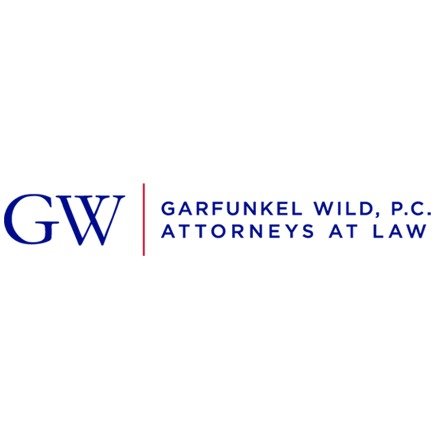Best New Business Formation Lawyers in New York
Share your needs with us, get contacted by law firms.
Free. Takes 2 min.
Or refine your search by selecting a city:
List of the best lawyers in New York, United States
About New Business Formation Law in New York, United States
Starting a new business in New York involves a series of legal steps designed to help entrepreneurs establish a compliant and secure operation. The New York business formation process is governed by both state and local regulations, ensuring that businesses operate within a legal framework from the beginning. New York offers several business structures, such as sole proprietorships, partnerships, limited liability companies (LLCs), and corporations, each with specific legal and tax implications. Understanding the formation requirements helps new business owners avoid legal pitfalls, streamline operations, and protect their interests.
Why You May Need a Lawyer
Legal issues can arise at various stages of forming a new business, making the advice of a qualified attorney invaluable. Some common situations where legal help is recommended include:
- Choosing the right business structure to protect personal assets and optimize taxation
- Drafting and reviewing foundational documents, such as operating agreements, bylaws, or partnership agreements
- Securing required licenses and permits unique to New York City or state regulations
- Navigating zoning laws and leasing agreements for physical locations
- Registering a business name and protecting trademarks or intellectual property
- Understanding employer obligations if hiring staff
- Ensuring compliance with local, state, and federal regulations
A lawyer can help prevent costly mistakes, clarify complex requirements, and provide peace of mind as your business gets off the ground.
Local Laws Overview
New York has specific rules relating to the formation of businesses. Here are key aspects to consider:
- Business Structure Selection: New York recognizes several business entity types, including LLCs, S corporations, C corporations, partnerships, and sole proprietorships. Each structure affects liability, taxation, and regulatory obligations differently.
- State Registration: Most businesses must file formation documents with the New York Department of State, Division of Corporations. For example, LLCs file Articles of Organization, and corporations file a Certificate of Incorporation.
- Publication Requirement: New York requires newly formed LLCs to publish notices of their formation in two newspapers for six consecutive weeks and then file a Certificate of Publication.
- Business Licenses and Permits: Depending on the business activity or location, various licenses and permits may be required from state or local agencies.
- Employer Obligations: Hiring employees in New York triggers registration with the New York State Department of Labor and compliance with wage, tax, and worker protection laws.
- Taxes: Businesses must register for applicable taxes with the New York State Department of Taxation and Finance, including sales tax, withholding tax, or corporate franchise tax.
Frequently Asked Questions
What business structures are available in New York?
New York offers several structures, including sole proprietorships, partnerships, limited liability companies (LLCs), corporations (C and S corps), and limited partnerships. Each has distinct advantages and legal requirements.
How do I register my business name in New York?
Registering a business name, also called a Doing Business As (DBA) or an assumed name, involves filing with either the county clerk or the New York Department of State, depending on your business structure.
What is the publication requirement for LLCs in New York?
Every newly formed LLC in New York must publish notices of formation in two approved newspapers for six consecutive weeks, then submit a Certificate of Publication and affidavits of publication to the Department of State.
Do I need a business license to operate in New York?
Many businesses require specific licenses or permits from state or local agencies, depending on the type of business and location. Some industries are more heavily regulated than others.
How do I protect my personal assets when starting a business?
Forming an LLC or corporation helps establish your business as a separate legal entity, thereby protecting your personal assets from business liabilities in most cases.
What tax obligations will my new business have?
Your business may be responsible for state and federal income taxes, sales tax, withholding tax if you have employees, and other relevant taxes. Register with the New York State Department of Taxation and Finance to comply with tax requirements.
Can I form a business in New York if I do not live in the state?
Yes, non-residents can form businesses in New York, but you must appoint a registered agent with an address in the state to receive legal documents.
How long does it take to form a business in New York?
Formation timelines vary by business structure, workload at state agencies, and completeness of documentation. Online filings for LLCs and corporations can take a few days, while mail filings or those requiring publication may take weeks.
What should I include in an operating agreement or bylaws?
Key elements include management structure, decision-making processes, member or shareholder roles, profit distribution, dispute resolution, and procedures for adding or removing members.
When should I consult a lawyer during the formation process?
It is helpful to consult a lawyer early in the process, especially when selecting a business structure, drafting foundational documents, or if you have complex legal questions about compliance or licensing.
Additional Resources
Several resources and agencies can assist in New Business Formation in New York:
- New York State Department of State, Division of Corporations: Responsible for business entity filings and record-keeping.
- New York State Department of Taxation and Finance: Offers guidance on tax registration and compliance for businesses.
- New York City Department of Small Business Services: Provides support, education, and resources for new and existing businesses.
- Small Business Administration (SBA) - New York District Office: Offers counseling, funding programs, and educational materials for entrepreneurs.
- County Clerk Offices: Handle local DBA registrations and other business filings.
Next Steps
If you are considering forming a new business in New York, begin by clarifying your business goals and gathering information about the structures and requirements. Consulting a qualified attorney can clarify your options, help draft necessary documents, and ensure all filings and registrations comply with state and local laws. Document your questions and any specific concerns to discuss during your consultation. Reach out to the agencies and organizations listed above for additional guidance, and stay proactive about meeting ongoing compliance and tax obligations after your business is formed.
Lawzana helps you find the best lawyers and law firms in New York through a curated and pre-screened list of qualified legal professionals. Our platform offers rankings and detailed profiles of attorneys and law firms, allowing you to compare based on practice areas, including New Business Formation, experience, and client feedback.
Each profile includes a description of the firm's areas of practice, client reviews, team members and partners, year of establishment, spoken languages, office locations, contact information, social media presence, and any published articles or resources. Most firms on our platform speak English and are experienced in both local and international legal matters.
Get a quote from top-rated law firms in New York, United States — quickly, securely, and without unnecessary hassle.
Disclaimer:
The information provided on this page is for general informational purposes only and does not constitute legal advice. While we strive to ensure the accuracy and relevance of the content, legal information may change over time, and interpretations of the law can vary. You should always consult with a qualified legal professional for advice specific to your situation.
We disclaim all liability for actions taken or not taken based on the content of this page. If you believe any information is incorrect or outdated, please contact us, and we will review and update it where appropriate.
Browse new business formation law firms by city in New York
Refine your search by selecting a city.
















